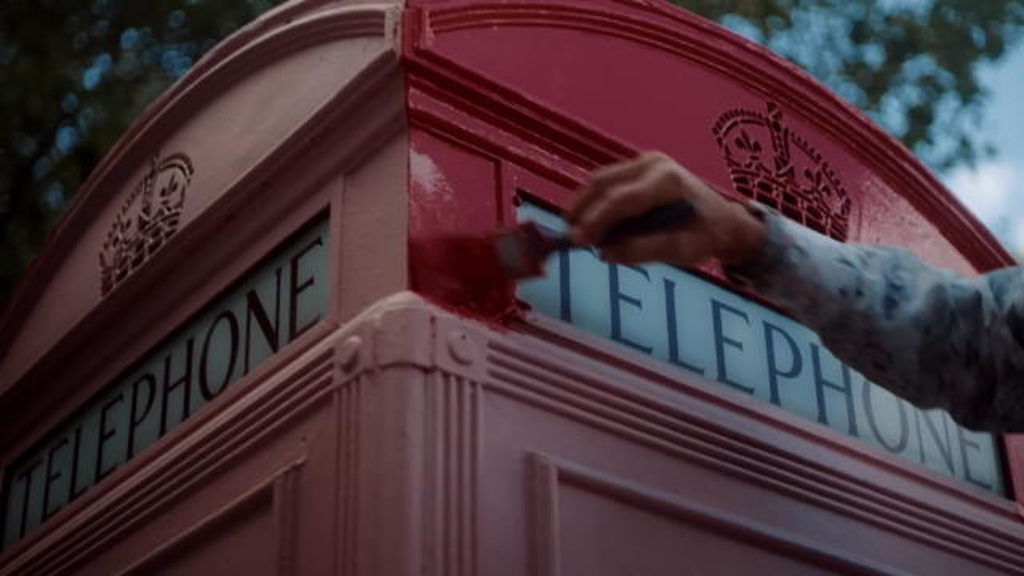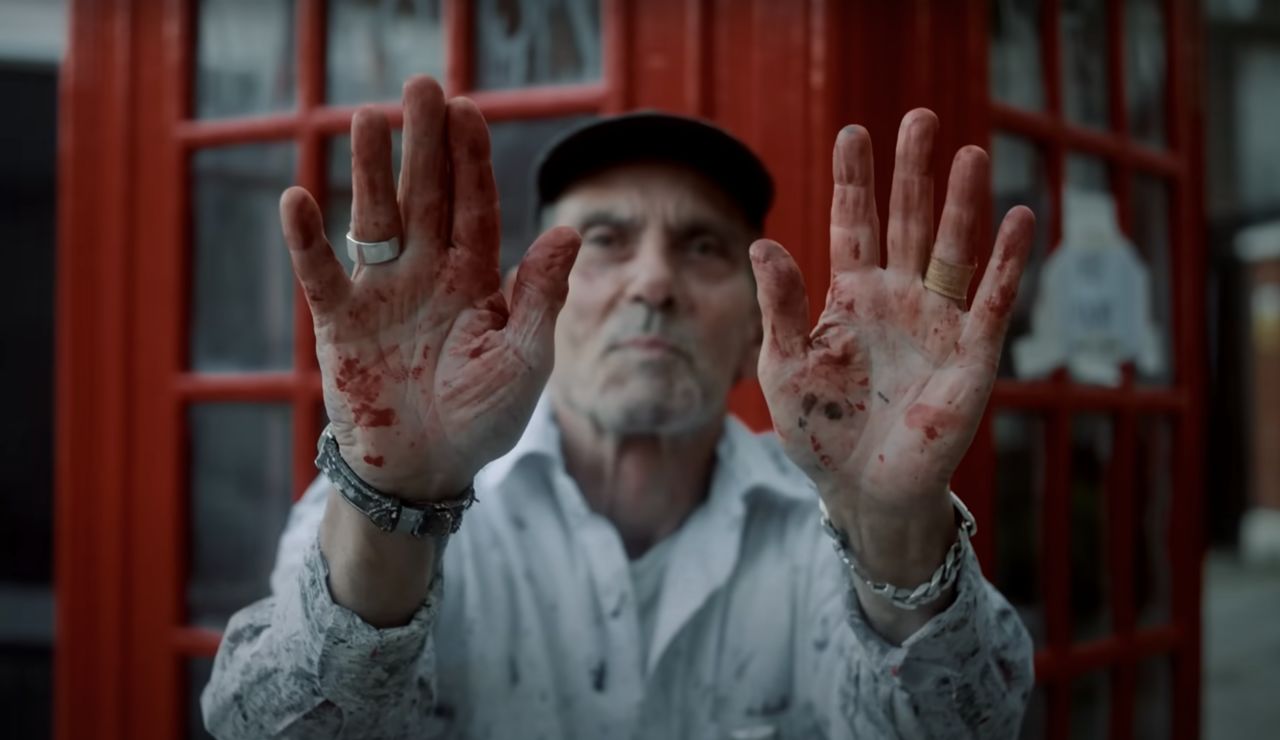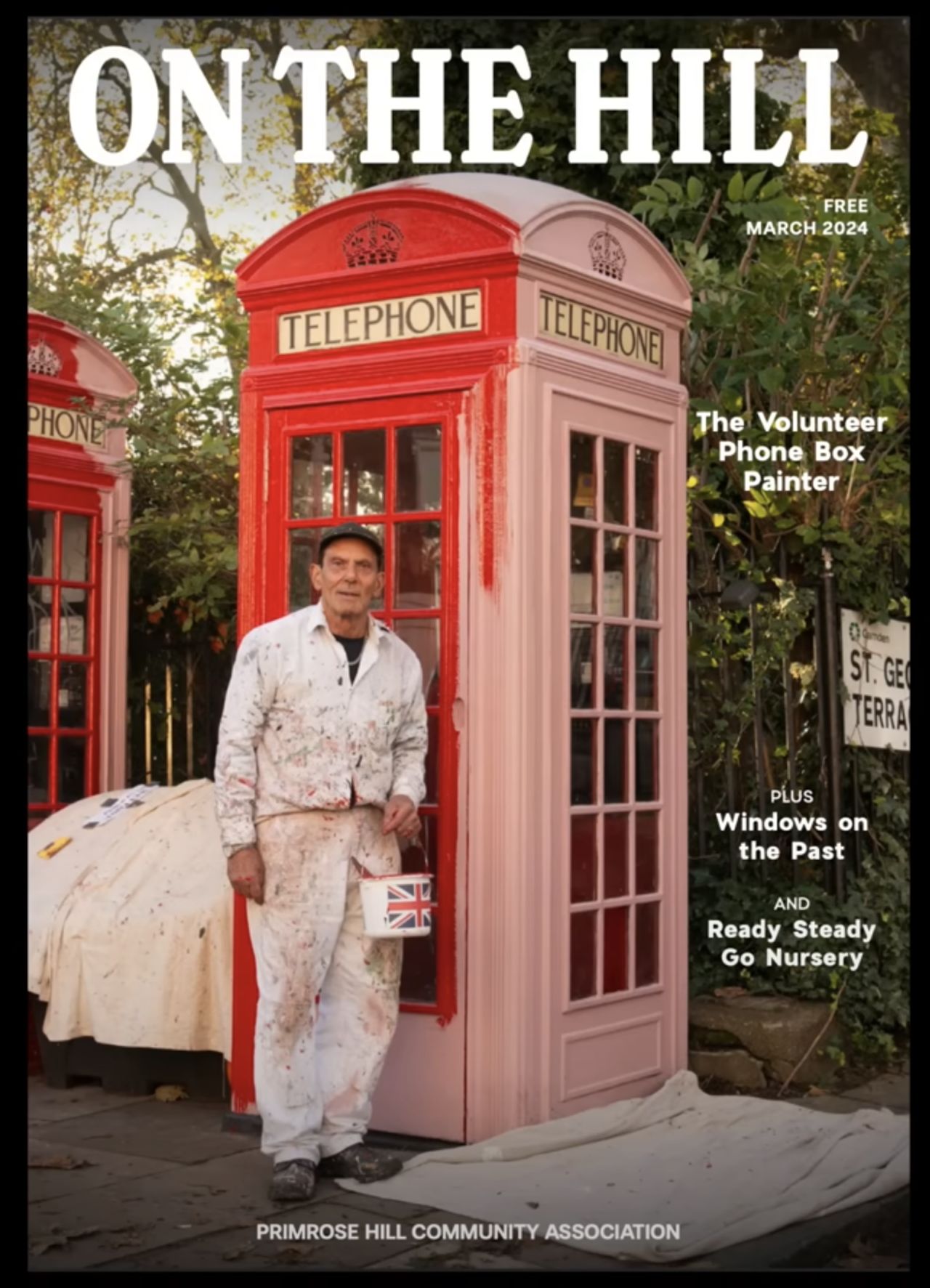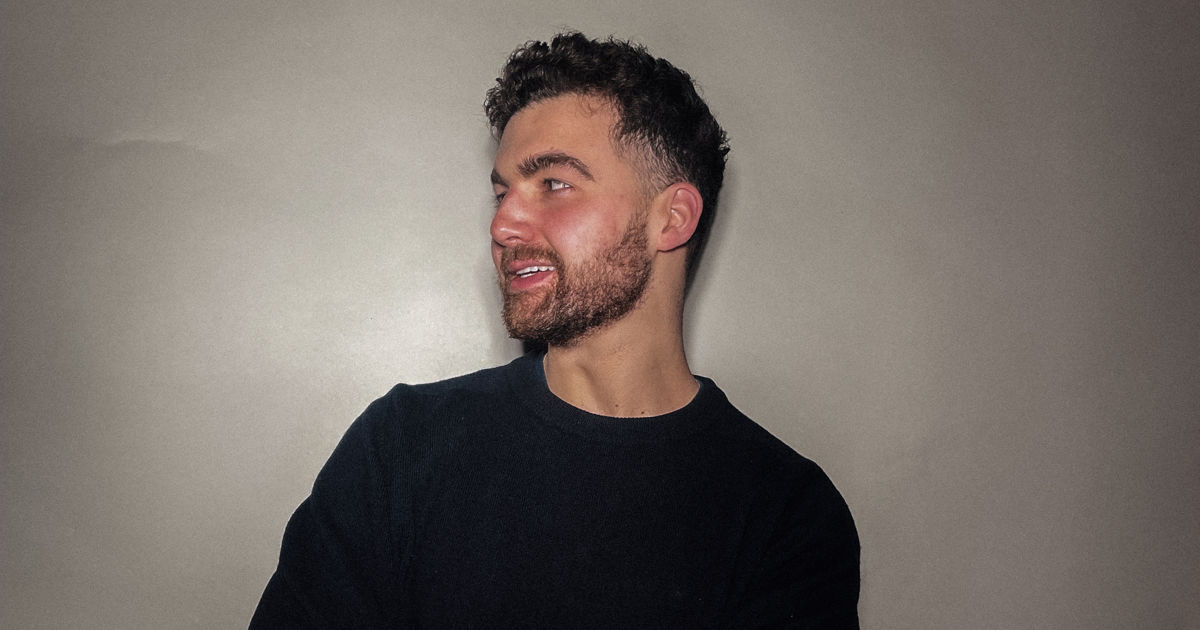shots Unsigned: Matthieu Livingston
For our next unsigned directing talent interview we speak with director Matthieu Livingston. Here we talk about his charming short documentary Wet Paint, getting annoyed with bystanders, and finding the film in the edit.
We recently came across a real gem of a documentary from unsigned director Matthieu Livingston and had to reach out for a quick chat as part of our Short Film & Documentary Focus.
Livingston's superb short documentary Wet Paint features the charming tale of Robert Pammen, known as the last telephone box painter in London...
Can you tell us a little about your background and your route into directing?
I come from the south of England, raised by a mother of Egyptian and French descent and an Irish father, which exposed me to a diverse range of films and art during my upbringing. My journey into filmmaking began at the age of twelve when I started creating short films with my friends on weekends and sharing them online. In my hometown, there was only one local film festival, hosted in a small café, where I would submit a film each year. I’ve kept making films ever since.
My journey into filmmaking began at the age of twelve when I started creating short films with my friends on weekends and sharing them online.
Did you study filmmaking? How did you learn your craft?
I studied Spanish and German at UCL. All of my learning of the craft has been practical through working on film sets and making my own short films. As a teenager, I would go over to Ireland to work on productions during my school and university summers. I worked as a trainee grip for the Irish company: Celtic Grips. It taught me a lot about set etiquette and keeping high standards. I was fortunate to work on some great productions such as Amazon Prime’s Vikings and Ridley Scott's The Last Duel. After a project on set, I would come home and produce a short film. It always surprised me how similar the processes were. You come up against the same challenges as you would on a high-profile set, just on a much smaller scale with less at stake.
Credits
powered by
-
-
- Director Matt Livingston
-
-
Unlock full credits and more with a Source + shots membership.
Credits
powered by
- Director Matt Livingston

Credits
powered by
- Director Matt Livingston
How did you first come across Robert Pammen?
It was completely serendipitous. It was on a weekend, I was on a run around Regent’s Park and saw him painting a phone box. I got chatting to Robert who explained to me that he was a professional painter by trade but did this in his free time. He got into it because he didn’t like the look of the run-down kiosk near his flat, so he decided to do something about it himself. British Telecom, who still owns them, sends him the paint and he restores them voluntarily. I loved his attitude, and it reminded me a lot of my dad who always needs to be fixing and improving things at home.
it’s really Robert’s character and personality that I thought needed spotlighting.
What made you want to tell his story?
I was very drawn to Robert’s passion. I loved the fact that he put his heart and soul into his work, and the more time I spent with him, I could see that painting was really his calling. I think the phone box visual is nice, harkening back to a time gone by, but it’s really Robert’s character and personality that I thought needed spotlighting.
Would you say you have a directing style? How did you arrive at it?
My style is classic, simple, and gentle. I think I discovered this by shooting and watching a lot. Through trial and error, you eventually find what you like and don’t like. It’s hard to find it any other way.

ABOVE: Robert, after a hard day's work.
What were the biggest challenges you faced in pulling this project together?
I think the biggest challenge was in finding the story within the material I had in the edit. With documentaries, it feels like there are infinite possibilities with what your film can be. It’s a fine line between not trying to cut against the material you have but also guiding the story in a direction that feels emotionally engaging and satisfying. Eventually, you have to ask yourself what you personally would want to watch and follow your instinct.
With documentaries, it feels like there are infinite possibilities with what your film can be.
How long was the shoot and what was the most challenging aspect of the project?
I followed Robert over the course of three weekends as he painted a phone box, start to finish, on Park Road. I would say the most challenging aspect was not knowing what direction it was all going in. I didn’t know what would happen, who we would meet, or what the film would be about, really. I had to let go to a certain extent and let things play out naturally, giving up control of what I thought I wanted to make.
What have you learned during the process of making Wet Paint?
Even though this is one of the simplest films I’ve made, I found it’s one where I've learned the most. When I set out to make the film I thought I would make a fun interview with Robert whilst he painted the phone box. I kept getting annoyed when bystanders kept interrupting the shoot to speak to him.
It was only in the edit where I realised that these conversations on the street were the most interesting parts and ended up making the film what it is. Robert’s interaction with people informs us a lot about his character and helps move the story forward.
Sometimes the answer is right there in front of you, and I learned a lot about getting out of your way and working with what you have.

ABOVE: Robert, on the cover of On The Hill.
What in your opinion makes a good subject for a documentary?
At its core, I think all subject matter can be good subject matter if the filmmaker can genuinely identify with the material emotionally and tell a clear and focused story around it.
What are your hopes and plans for the future?
I want to keep directing films and keep getting better at the craft of filmmaking, eventually directing feature films, TV, and commercials.
Currently, I run a business called Blown Away which makes branded documentaries (working with clients such as IWC, Thom Sweeney, Knight Frank, Sebago, Smurfit Kappa).
Our studio is based in Shoreditch on Luke Street.
)














